- Home
- Dan Simmons
Song of Kali Page 3
Song of Kali Read online
Page 3
"For Chrissake," I said to Krishna, "here, give them a few more rupees. Let's get out of here."
"No!" Krishna's gaze swept my direction, and the violence there was no longer restrained. It held the gleeful look one sees on the faces of men at a blood sport. "It is too much," he said firmly.
There was a mob of porters at the door now. Suddenly hands began slapping against the side of the bus. The driver sat up and adjusted his cap nervously. The old man in the doorway had stepped up onto the lowest step as if to enter, but Krishna put three fingers against the bare chest and pushed firmly. The old man fell backward onto the sea of brown-garbed forms.
Gnarled fingers suddenly gripped the partially opened window next to Amrita, and the porter with the burned face pulled himself up as if he were on a chinning bar. Inches from us, his mouth worked frantically, and we could see that he had no tongue. Saliva spattered the dust-streaked window.
"Goddammit, Krishna!" I rose to give the porters the money. At that moment three policemen appeared out of the shadows. They wore white helmets, Sam Browne belts, and khaki shorts. Two of them carried lathi sticks — the Indian version of a cop's nightstick — three feet of heavy wood with an iron core in the business end.
The mob of porters continued shouting, but melted back to let the police advance. The scarred face dropped away from Amrita's window. The first cop banged his stick on the front of the bus, and the old porter turned to shout his complaints. The policeman raised his deadly club and screamed back. Krishna took the opportunity to swing the handle that closed the door of the bus. He snapped two syllables to the driver and we began to move, accelerating quickly down the dark driveway. There was a loud clang as a thrown rock struck the rear of the bus.
Then we were out of the airport and swinging onto an empty four-lane road. "VIP Highway," called Krishna from where he still stood by the door. "Traveled only by very important persons." A pale billboard flashed by to the right. The simple message — in Hindi, Bengali, and English — read WELCOME TO CALCUTTA.
We drove without headlights, but the interior lights of the bus stayed on. Amrita's lovely eyes were set with circles of fatigue. Victoria — too exhausted to sleep, tired of crying — made mewling noises from her mother's arms. Krishna sat down sideways on the seat in front of us, hawk nose in profile, his angry countenance illuminated by the overhead bulbs and an occasional street light.
"I went to university in the States for almost three years," he said.
"Really?" I said. "That's very interesting." I felt like smashing the stupid sonof-a-bitch's face in for creating such a mess.
"Yes, yes. I worked with blacks, Chicanos, Red Indians. The oppressed people of your country."
The marshy fields of darkness that had bordered the highway gave way suddenly to a jumble of shacks that came right up to the shoulder of the road. Lanterns glowed through burlap walls. In the distance a bonfire showed sharp silhouettes moving jerkily in front of yellow flames. Seemingly without transition we were out of the country and winding through narrow, rain-filled streets that twisted past blocks of derelict high-rises, miles of tin-roofed slums, and endless vistas of decaying, blackened storefronts.
"My professors were fools. Conservative fools. They thought that literature was composed of dead words in books."
"Yes," I said. I had no idea of what Krishna was talking about.
The streets were flooded. Water stood two and three feet deep in places. Under tattered canvas, robed figures sat and slept and squatted and stared at us with eyes that showed only white in orbs of shadow. Each alley gave a glimpse of open rooms, starkly lit courtyards, shadows moving within shadows. A frail man pulling a heavy cart had to leap aside as our bus roared past, throwing a curtain of water across him and his load. He shook his fist, and his mouth shaped unheard obscenities.
The buildings seemed ancient beyond age, decayed remnants of some forgotten millennium — some pre-human age — for the shadows, angles, apertures, and emptinesses did not fit the architecture of man. Yet, on every second or third floor there were open-windowed glimpses of humanity inhabiting these druidic shambles: bare bulbs swinging, bobbing heads, peeled walls with plaster rotting off the white rib-bones of the building, garish illustrations of multi-armed deities clipped from magazines and taped crookedly to walls or window-panes, the cries of children playing, running, fleeing through the knife-blackened alleys, the wail of infants half-heard — and everywhere the random movement caught in the corner of one's vision, the sibilant rush of the bus's tires on wet clay and tarmac, and the sight of sheeted figures lying like corpses in the sidewalk shadows. A terrible feeling of déjà vu came over me.
"I quit in disgust when a fool of a professor would not accept my paper on Walt Whitman's debt to Zen Buddhism. An arrogant, parochial fool."
"Yes," I said. "Do you think we could turn off these inside lights?"
We were approaching the center of the city. Rotting residential slums gave way to larger, even more decayed-looking buildings. There were few streetlights. Vague flickers of heat lightning were reflected in the deep pools of black water that filled the intersections. Every darkened storefront seemed to hold the silent, sheeted forms lying like unclaimed bundles of laundry or propped up to watch us pass. The yellow lights inside the bus made the three of us look like waxen corpses. I knew now how prisoners of war must feel while being paraded through the streets of the enemy's capital.
Ahead, a boy stood atop a crate in a black circle of water and swung what I took to be a dead cat by its tail. He threw it as the bus approached, and it was not until the furry corpse bounced hollowly off the windshield that I realized it had been a rat. The driver cursed and swerved toward the child. The boy leaped away with a flash of brown legs, and the crate he had been standing on splintered under our right wheel.
"You understand, of course, because you are a poet," said Krishna, and bared small, sharp teeth.
"What about the lights?" I asked. I could feel the rage rising in me. Amrita touched my arm with her left hand.
Krishna snapped something in Bengali. The driver shrugged and grunted an answer.
"The switch is broken," said Krishna.
We swung into an open square. What may have been a park cut a solid line of blackness through the maze of sagging buildings. Two streetcars sat abandoned in the center of a cluttered plaza while a dozen families huddled nearby under sagging canvas. It began to rain again. The sudden downpour beat at the metal of the bus like fists from the dark sky. Only the driver's side of the windshield had a wiper, and it moved sluggishly against the curtain of water that soon put a veil between the city and us.
"We must talk about Mr. M. Das," said Krishna.
I blinked. "I would like the lights out," I said slowly and distinctly. The irrational fury had been building in me since the airport. In a second I knew I would be choking this smug, insensitive cretin; choking him until his froglike eyes popped out of his stupid head. I felt the anger flow down into me like the heat from a strong drink. Amrita must have sensed my second of insanity, for her restraining hand closed on my arm like a vise.
"It is very important that I talk to you about Mr. M. Das," said Krishna. The heat in the bus was almost overpowering. Sweat stood on our faces like burn blisters. Our breath seemed to hang in the air like vapor while the world remained obliterated by the crashing downpour outside.
"I'll turn out the fucking lights," I said, and started to rise. Amrita would have held me back with both hands had it not been for Victoria.
Krishna's heavy brows went up in surprise as I towered over him. I freed my right arm just as Amrita said, "It doesn't matter, Bobby. We're here. Look, there's the hotel."
I paused and then stooped to look out the window. The downpour had stopped as suddenly as it had begun, and only a light drizzle continued to fall. My anger diminished with the ebbing sound of rain on the roof.
"We will perhaps speak later, Mr. Luczak," said Krishna. "It is most important. Tomorrow, perhaps."<
br />
"Yeah." I lifted Victoria in my arms and led the way off the bus.
The front of the Oberoi Grand Hotel was as dark as a granite cliff, but a little light escaped from the double doorway. A tattered awning ran to the curb. On either side, standing silently under rain-slicked umbrellas, were a dozen or so shadowy figures. Some were holding soggy placards. I could make out a hammer and sickle, and the English word UNFAIR on one. "Strikers," said Krishna as he snapped his fingers at a sleepy, red-vested porter. I shrugged. A picket line outside a pitch-black hotel at one-thirty A.M. in monsoon-drenched Calcutta did not surprise me. Sometime in the previous half-hour, my sense of reality had slipped its tether. A roaring filled my ears like the rasp of countless insect legs. Jet lag, I thought.
"Thank you for picking us up," said Amrita as Krishna hopped back aboard the bus.
He flashed his baby shark's grimace. "Yes, yes. I talk to you tomorrow. Good night. Good night."
The entrance to the hotel seemed to include several dark hallways that separated the lobby from the street like a protective labyrinth. The lobby itself was bright enough. The clerk was wide-awake, smartly dressed, and pleased to see us. Yes, the reservations were right here for Mr. and Mrs. Luczak. Yes, they had received our telex about the delay. The baggage porter was an old man, but he cooed at Victoria as we took the elevator to the sixth floor and I gave him ten rupees as he left us.
Our room was as cavernous and shadowy as everything else in the city, but it seemed relatively clean and there was a heavy bolt on the door.
"Oh, no!" It was Amrita's voice from the bathroom. I was there in three strides with my heart pounding.
"There are no towels," said Amrita. "Only washcloths." We both began to laugh then. One of us would stop, only to have the other start it up again.
It took us ten minutes to make a nest for Victoria on the empty bed, to strip off our sweat-sodden clothes, rinse up as well as possible, and crawl under the thin spread together. The air conditioner clunked and wheezed hollowly. Somewhere close by, a toilet flushed explosively. The throbbing sound in my ears was the echo of jet engines.
"Sweet dreams, Victoria," said Amrita. The baby cooed softly in her sleep.
We were asleep in two minutes.
4
"And on the great courtyard
after the breaking of local barriers
Complete communication between men,
affable loiterings begin."
— Purnendu Patri
Everything always seems better in the morning light," said Amrita.
We were having breakfast in the Garden Café of the hotel. Victoria was gurgling happily from the highchair the obliging waiters had brought us. The café looked out on the gardens, which filled the courtyard. Workers on scaffolds called merrily to one another.
I drank my tea, nibbled on the toasted muffin, and read the Calcutta English-language paper. The editorial called for a more modern transit system. Ads sold saris and motorcycles. A smiling Indian family held up bottles of Coca-Cola. Nearby on the page there was a close-up photo of a corpse — decomposing, face laid open like a burst rubber tire, glazed eyes protruding. The body had been discovered in an unclaimed steel trunk in Howrah Railway Station just yesterday — Thursday, July 14 — and anyone who could furnish a clue as to the identity of the deceased should contact the Inspector of Police, Howrah, Govt Rly, and mention case No. 23 dt. 14.7.77 u/s 302/301 I.P.C. (S.R. 39/77).
I folded the paper and set it on the table.
"Mr. Luczak? Good morning!" I rose to shake hands with the middleaged Indian gentleman who had approached us. He was short, light skinned, almost bald, and wore thick, horn-rimmed glasses. His tropical worsted suit was impeccably tailored, and his handshake was gentle. "Mr. Luczak," he said, "I am Michael Leonard Chatterjee. Mrs. Luczak, a great pleasure to meet you." He bowed slightly and took Amrita's hand in his. "My sincere apologies for not meeting you at the airport last night. My driver mistakenly informed me that the Bombay flight had been delayed until this morning."
"No problem," I said.
"But unfortunate and inhospitable to have to enter a city without being properly welcomed. I do apologize. We are most pleased that you are here."
"Who is 'we'?" I asked.
"Please join us," said Amrita.
"Thank you. What a beautiful child! She has your eyes, Mrs. Luczak. 'We' are the Bengali Writers' Union, Mr. Luczak. We have been in repeated contact with Mr. Morrow and his fine publication, and we look forward to sharing with you the most recent work of Bengal's . . . no, of India's finest poet."
"So M. Das is still alive?"
Chatterjee smiled gently. "Oh, most assuredly, Mr. Luczak. We have received numerous correspondences from him in the past six months."
"But have you seen him?" I pressed. "Can you be sure it's M. Das? Why has he disappeared for eight years? When can I meet with him?"
"All in good time, Mr. Luczak," said Michael Leonard Chatterjee. "All in good time. I have arranged for an initial meeting for you with the executive council of our writers' union. Would two P.M. today be convenient for you? Or would you and Mrs. Luczak like a day to rest and sightsee?"
I glanced at Amrita. We had already decided that if I did not need a translator, she and Victoria would stay at the hotel and rest. "Today would be fine," I said.
"Marvelous, marvelous. I will send a car at one-thirty."
We watched as Michael Leonard Chatterjee left the café. Behind us, workmen on bamboo scaffolds shouted happily to hotel employees walking through the gardens. Victoria banged loudly on the tray of her highchair and joined in the merriment.
The billboard in the littered plaza across the street from the hotel was for the United Bank of India. It had no illustration, only black letters on a white background: Calcutta — Cultural Capital of the Nation? — A Definition of Obscenity? It seemed a strange way to advertise a bank.
The car was small, black Premiere with a driver in cap and khaki shorts. We set off down Chowringhee Road, and as we crawled through heavy traffic I had a chance to look at Calcutta in the daylight.
The scene was almost comical in its mad intensity. Pedestrians, flotillas of bicycles, oriental-looking rickshaws, automobiles, flatbed trucks adorned with swastikas, countless motorbikes, and creaking bullock carts all vied for our narrow lane of torn-up pavement. Cattle wandered freely, blocking traffic, poking their heads into shops, and wading through heaps of raw garbage, which were stacked on curbs or piled in the center of the street. At one point the refuse lay knee-deep for three blocks, lining the street like a dike. Human beings also waded through it, competing with the cattle and crows for edible bits.
Farther on, schoolgirls in prim white blouses and blue skirts crossed the street in single file while a brown-belted policeman held up traffic for them. The next intersection was dominated by a small red temple that sat squarely in the center of the road. The sweet smell of incense and sewage came in through the open window of the car. Red banners hung from wires and decaying facades. And everywhere was the unceasing movement of brown-skinned humanity — an almost tidal flow of jostling, white- and tan-garbed population, which seemed to make the very air heavy with its moist exhalations.
Calcutta in the light was impressive, perhaps a trifle intimidating, but it caused none of the strange fear and anger of the night before. I closed my eyes and tried to analyze the fury that had seized me on the bus, but the heat and noise prevented me from concentrating. Every bicycle bell in the universe seemed to be combining with car horns, shouts, and the rising susurration of the city itself to create a wall of noise that was almost physical in its impact.
The Writers' Union had its headquarters in a gray, hulking structure just off Dalhousie Square. Mr. Chatterjee met me at the base of the stairs and led the way to the third floor. The room was large and windowless. The fading remnants of a fresco looked down from the begrimed ceiling, and seven people looked up from a green-baized table.
Introductions were made.
I was terrible at remembering people's names in the best of circumstances, and I felt a sense of vertigo as I tried to fix the lists of Bengali syllables I was hearing with the brown and cultured faces. The only woman there, tired face, gray hair, and heavy green sari, which she was constantly readjusting on her shoulder, seemed to be named Leela Meena Basu Belliappa.
There were several minutes of small talk made difficult by our dialects. I found that if I relaxed and let the singsong rush of Indian English flow over me, the meaning came soon enough. The choppy lilt of their speech was strangely soothing, almost hypnotizing. Suddenly a white-smocked retainer appeared from the shadows and distributed chipped cups heavy with sugar, clotted buffalo milk, and a little tea. I sat between the woman and the director of the executive council, a Mr. Gupta. He was a tall, middle-aged man with a thin face and a ferocious overbite. I found myself wishing that Amrita had come along. Her stolid presence would have been a buffer between me and these intense strangers.

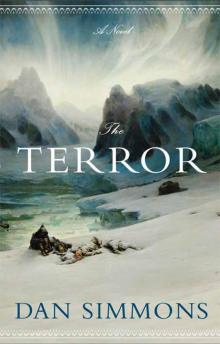 The Terror
The Terror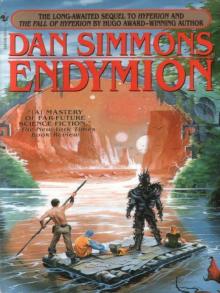 Endymion
Endymion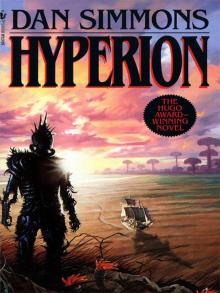 Hyperion
Hyperion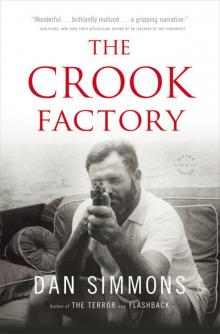 The Crook Factory
The Crook Factory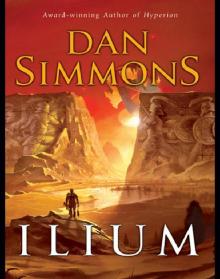 Ilium
Ilium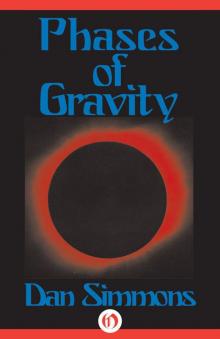 Phases of Gravity
Phases of Gravity Hardcase
Hardcase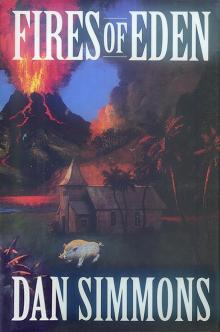 Fires of Eden
Fires of Eden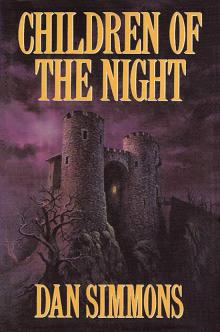 Children of the Night
Children of the Night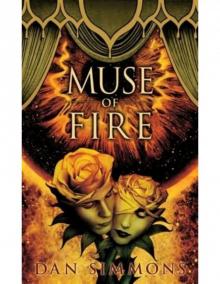 Muse of Fire
Muse of Fire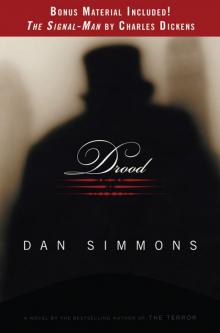 Drood
Drood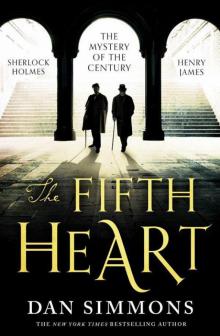 The Fifth Heart
The Fifth Heart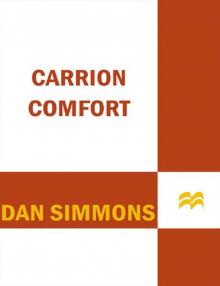 Carrion Comfort
Carrion Comfort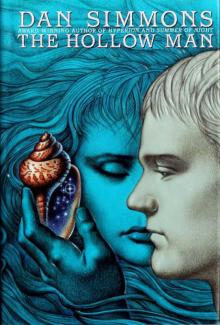 The Hollow Man
The Hollow Man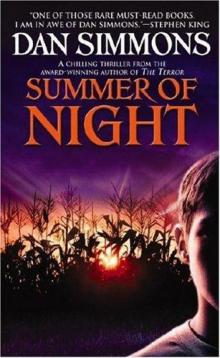 Summer of Night
Summer of Night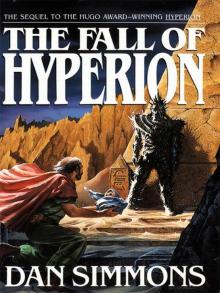 The Fall of Hyperion
The Fall of Hyperion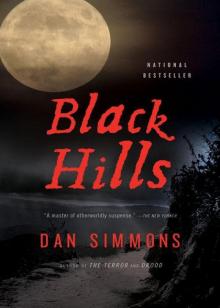 Black Hills
Black Hills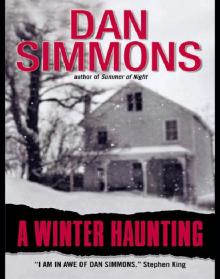 A Winter Haunting
A Winter Haunting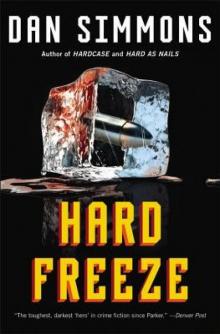 Hard Freeze
Hard Freeze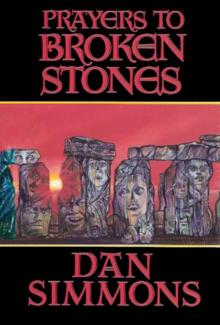 Prayers to Broken Stones
Prayers to Broken Stones Hard as Nails
Hard as Nails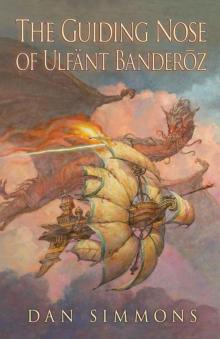 The Guiding Nose of Ulfant Banderoz
The Guiding Nose of Ulfant Banderoz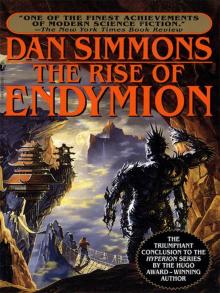 The Rise of Endymion
The Rise of Endymion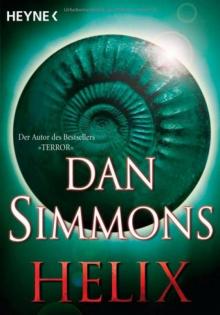 Orphans of the Helix
Orphans of the Helix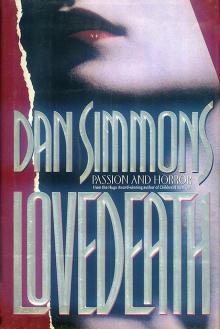 Lovedeath
Lovedeath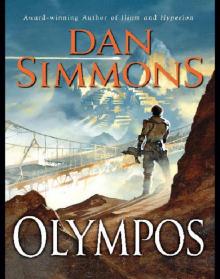 Olympos
Olympos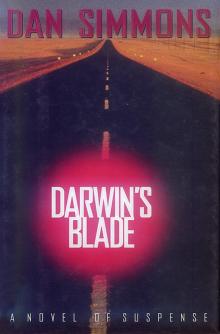 Darwin's Blade
Darwin's Blade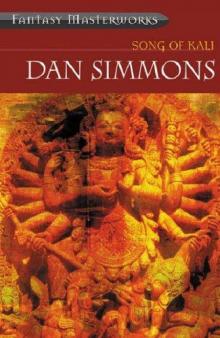 Song of Kali
Song of Kali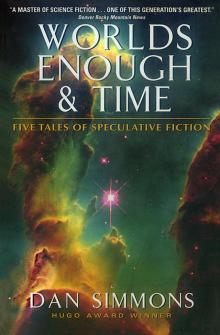 Worlds Enough & Time: Five Tales of Speculative Fiction
Worlds Enough & Time: Five Tales of Speculative Fiction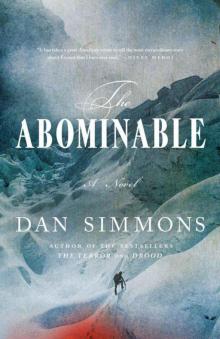 The Abominable
The Abominable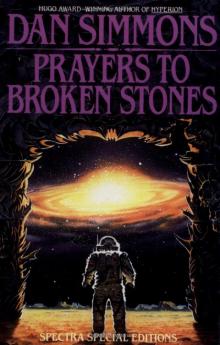 The Death of the Centaur
The Death of the Centaur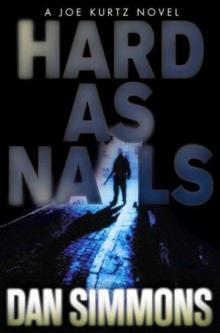 Hard as Nails jk-3
Hard as Nails jk-3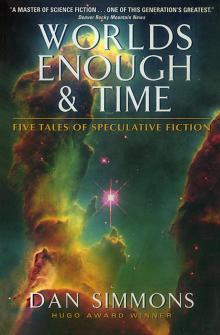 Worlds Enough & Time
Worlds Enough & Time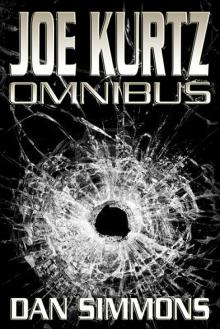 Joe Kurtz Omnibus
Joe Kurtz Omnibus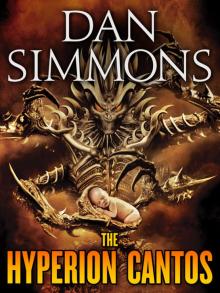 The Hyperion Cantos 4-Book Bundle
The Hyperion Cantos 4-Book Bundle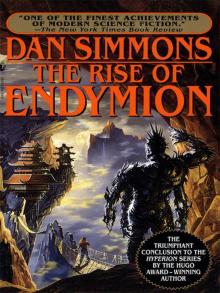 Rise of Endymion
Rise of Endymion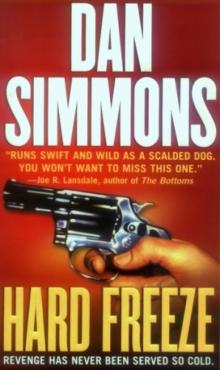 Hard Freeze jk-2
Hard Freeze jk-2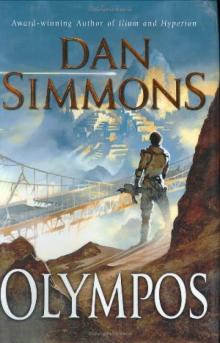 Olympos t-2
Olympos t-2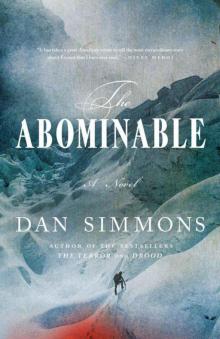 The Abominable: A Novel
The Abominable: A Novel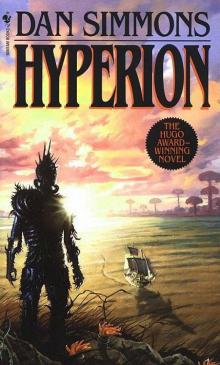 Hyperion h-1
Hyperion h-1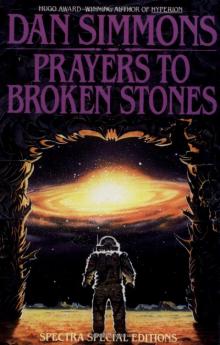 Remembering Siri
Remembering Siri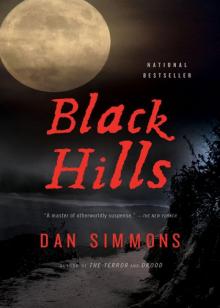 Black Hills: A Novel
Black Hills: A Novel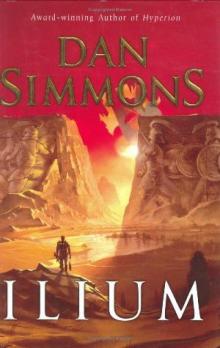 Ilium t-1
Ilium t-1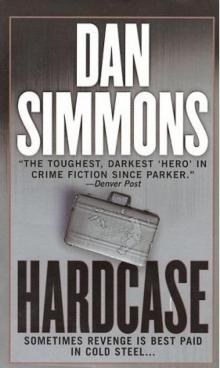 Hardcase jk-1
Hardcase jk-1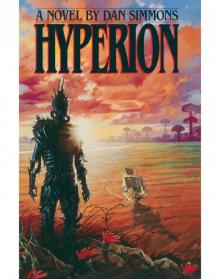 Hyperion 01 - Hyperion
Hyperion 01 - Hyperion